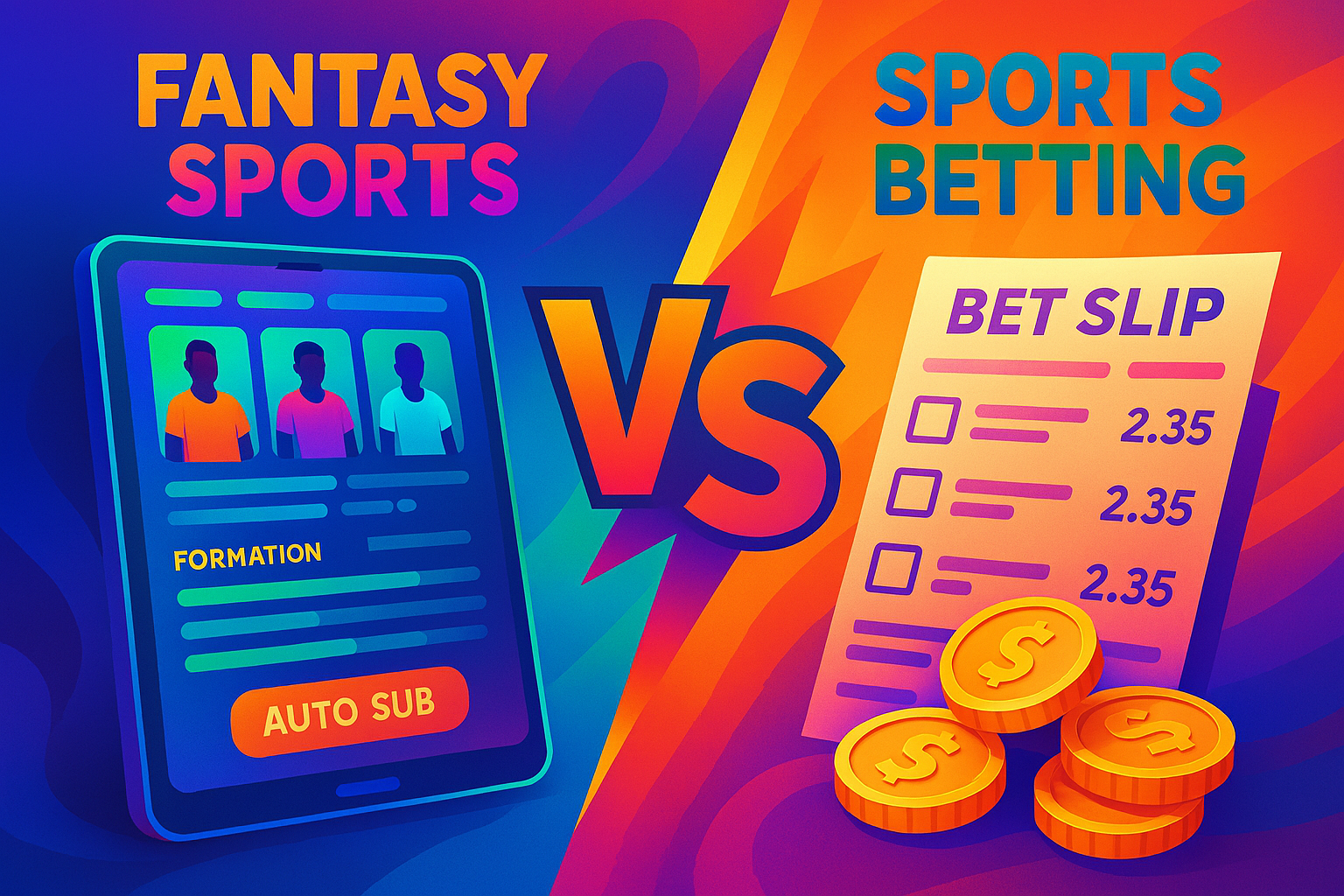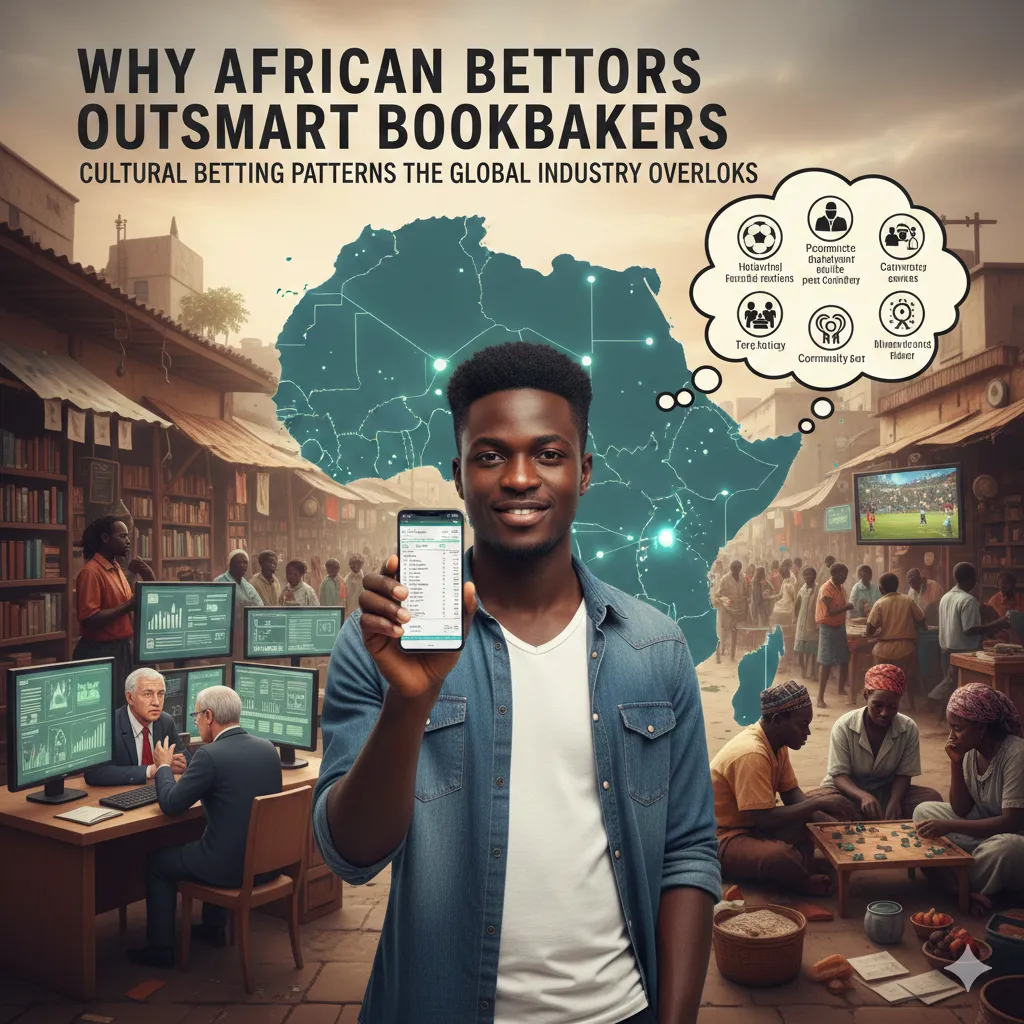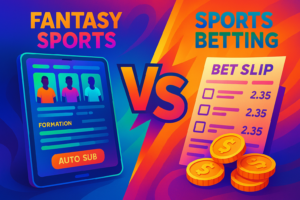Fantasy Sports vs. Traditional Betting in Africa
The African gambling landscape is experiencing a significant evolution as fantasy sports platforms gain traction alongside the continent’s well-established traditional betting industry. This emerging dynamic creates a fascinating intersection between two distinct forms of sports-based wagering that appeal to overlapping yet different consumer segments. Traditional sports betting has deep roots across African markets, with physical betting shops and mobile platforms offering straightforward wagers on match outcomes, generating billions in annual revenue from Nigeria to South Africa. In contrast, fantasy sports—where participants assemble virtual teams of real players that earn points based on actual statistical performance—represents a newer entrant gaining momentum particularly among younger, digitally-connected Africans seeking more interactive and prolonged engagement with sports. The relationship between these two sectors encompasses both competition and complementarity, as they simultaneously vie for consumer attention while potentially enhancing overall interest in sports engagement and performance statistics. Research indicates approximately 70% of fantasy sports participants in African markets also engage in traditional betting activities, creating significant crossover between these consumer bases. Understanding the nuanced differences, regulatory approaches, and future trajectories of fantasy sports and traditional betting provides valuable insight into how African consumers interact with sports through financial participation, and how these parallel industries might reshape the continent’s gambling ecosystem in coming years.
The Rising Popularity of Fantasy Sports in African Markets
Fantasy sports have emerged as an increasingly significant component of Africa’s digital entertainment landscape, transitioning from niche activity to mainstream engagement particularly among younger, tech-savvy sports enthusiasts. This growth trajectory, while still in relatively early stages compared to established markets like the United States and United Kingdom, demonstrates distinctive characteristics shaped by Africa’s unique sporting preferences, technological environment, and consumer behaviors.
Market Development and Current Landscape
The fantasy sports sector in Africa has developed unevenly across different regions, with Nigeria, South Africa, and Kenya emerging as the primary markets driving adoption. Current estimates suggest approximately 5 million active fantasy sports participants across the continent, representing significant growth from virtually non-existent participation levels five years ago but still indicating substantial room for expansion compared to traditional betting engagement. The competitive landscape features both international platforms and homegrown operators adapting the fantasy sports model to African contexts. Global players like DraftKings and FanDuel have established limited presence primarily in South Africa, while regional specialists including SportsHero, AfroMillionsLeague, and SportyBet Fantasy have developed offerings specifically tailored to African user preferences and technological constraints. These African-focused platforms typically feature simplified gameplay mechanics, lower entry fees, and optimization for low-bandwidth mobile environments that reflect the continent’s connectivity realities. Football (soccer) dominates as the primary sport across most fantasy platforms, accounting for approximately 80-85% of total activity, with the English Premier League generating the highest participation levels followed by other European leagues, CAF competitions, and domestic African leagues. Recent growth indicates increasing diversification into other sports including basketball (particularly NBA), cricket, and rugby, though these remain relatively minor components of the overall fantasy sports ecosystem across most African markets.
Technology Enablers and Access Challenges
The growth of fantasy sports in Africa has been fundamentally enabled by increasing smartphone penetration, which has reached approximately 45-50% across major fantasy sports markets, allowing the detailed team management and statistics tracking essential for meaningful participation. Mobile money integration has proven particularly crucial for platform adoption, with leading fantasy operators across East Africa reporting that approximately 70-80% of financial transactions occur through mobile money services rather than traditional banking channels. This payment accessibility has democratized participation beyond the banked population to include the much larger segment of mobile money users. However, significant challenges persist regarding data costs and connectivity reliability, with fantasy platforms developing offline functionality that allows team management during disconnected periods with updates processing when connectivity resumes. The digital divide remains evident in participation demographics—approximately 70% of fantasy sports users across major African markets live in urban areas despite substantial rural populations, reflecting persistent connectivity disparities. Fantasy operators have responded with progressive technological approaches including data-lite applications requiring 60-80% less bandwidth than their international counterparts, USSD-based simplified fantasy games accessible through feature phones, and “fantasy lite” offerings with streamlined interfaces requiring minimal data consumption for users in bandwidth-constrained environments.
Social Dynamics and Community Engagement
The social dimension of fantasy sports has proven particularly significant in driving adoption across African markets, with participation frequently organized around existing community structures rather than purely individual engagement. Research from Nigeria indicates approximately 65% of fantasy sports participants join leagues with friends, colleagues, or family members, creating communal experiences that extend beyond digital interaction into real-world social dynamics. Platform operators have recognized and reinforced this social element by developing features specifically encouraging community formation, including neighborhood leagues based on geographic proximity, workplace competitions, and university-focused fantasy tournaments that leverage existing social connections. These community structures create powerful retention mechanisms through social obligation and friendly competition, with participants remaining engaged partly due to social expectations within their peer groups. Fantasy sports discussions have integrated into broader sports socialization, with survey data from Kenya indicating fantasy team performance now features prominently in approximately 40% of sports-related social conversations among younger demographics. This social embeddedness creates distinctive participation patterns, with significantly higher rates of league completion and season-long engagement compared to more individualistic fantasy participation in Western markets. The community dimension also influences platform selection, with group decision-making often determining which fantasy provider an entire social circle adopts, making social network effects particularly powerful in determining market share across Africa’s developing fantasy sports landscape.
Traditional Sports Betting: Africa’s Established Gambling Sector
Traditional sports betting represents a deeply entrenched component of Africa’s gambling landscape, having evolved from informal beginnings into a sophisticated industry generating billions in annual wagering volume. This established sector provides essential context for understanding how fantasy sports position themselves within existing gambling behaviors and infrastructure across diverse African markets.
- Retail betting shops continue to dominate physical gambling infrastructure across Africa, with Nigeria alone hosting an estimated 50,000 licensed betting outlets serving as both transaction points and social spaces for communal betting engagement.
- Mobile betting has experienced exponential growth, with approximately 70-75% of all sports wagers across major African markets now placed through mobile platforms, though significant regional variations exist in digital adoption rates.
- European football attracts approximately 75-80% of total betting volume across most African markets, with the English Premier League alone generating roughly 35-40% of all football betting activity continent-wide.
- Industry consolidation shows accelerating trends, with the top five betting operators now controlling approximately 65-70% of regulated market share in Kenya and 55-60% in Nigeria according to industry research.
- Regulatory fragmentation persists across the continent, with 38 African countries having established some form of legal sports betting framework, though enforcement capabilities and regulatory sophistication vary dramatically between jurisdictions.
The economic scale of traditional sports betting across Africa demonstrates its significance as both an industry and social phenomenon. Current market estimates value the regulated African sports betting sector at approximately $4.7-5.3 billion annually in gross gaming revenue (operator winnings after paying out successful bets), with Nigeria ($2 billion), South Africa ($1.2 billion), Kenya ($600 million), and Ghana ($350 million) representing the largest markets. However, these official figures likely underestimate actual market size due to substantial informal betting activities occurring outside regulated channels. Participation levels have reached remarkable penetration, with approximately 30-35% of adults in urban areas across major betting markets engaging in sports betting at least occasionally according to multiple research studies. This extensive participation creates significant economic flows beyond direct operator revenues—including substantial advertising expenditures estimated at $150-200 million annually across major African markets, telecommunications revenue from betting-related SMS and data services, and extensive employment in both direct betting operations and auxiliary services supporting the industry. The sector’s economic footprint extends through various value chains, creating complex dependencies between betting operators, media companies, telecommunications providers, and payment processors that collectively form a substantial economic ecosystem dependent on continued betting activity.
The competitive landscape of traditional betting has evolved toward increasing sophistication, with clear stratification between different operator categories. International brands including Betway, 1xBet, and bet365 have established significant presence across multiple African countries, bringing advanced platform technologies and diverse product offerings developed in mature gambling markets. Regional champions like SportPesa (East Africa), Bet9ja (Nigeria), and Hollywoodbets (South Africa) leverage deep local market knowledge and brand recognition to maintain leading positions in their respective territories despite international competition. Smaller local operators increasingly struggle against these larger competitors due to marketing resource disadvantages and technology limitations, though they maintain relevance through community relationships and retail networks in areas underserved by larger brands. This competitive environment has driven continuous product evolution, with operators introducing features like cash-out options, bet builders, livestreaming integration, and virtual sports to differentiate their offerings and retain customers in increasingly contested markets. The resulting industry demonstrates remarkable adaptability to local conditions while maintaining connections to global betting trends, creating sophisticated offerings that have established deep cultural penetration across diverse African societies.
Key Differences in Gameplay, Skill, and Engagement
Fantasy sports and traditional betting represent fundamentally different approaches to sports wagering despite their surface similarities, with distinct characteristics regarding gameplay mechanics, skill components, engagement patterns, and psychological appeal. Understanding these differences provides essential insight into how these parallel industries attract participants and why they occupy different positions within Africa’s broader sports entertainment ecosystem.
Gameplay Mechanics and Duration Differences
The core structural differences between fantasy sports and traditional betting create distinctly different consumption experiences, beginning with fundamental variations in participation timeframes. Traditional betting typically involves discrete, transaction-based interactions where wagers are placed on specific events with relatively short resolution periods—a weekend football match, a single tournament, or at most a season-long outright bet. In contrast, fantasy sports are inherently season-long or at minimum multi-week engagements requiring sustained participation, team management, and ongoing decision-making throughout the duration of competitions. This temporal difference significantly impacts user experience, with traditional betting providing immediate gratification through quick resolution and potential short-term rewards, while fantasy sports create extended engagement cycles with delayed but potentially more satisfying cumulative outcomes. The game mechanics themselves differ fundamentally—traditional betting requires selecting outcomes from operator-defined options with fixed odds, while fantasy sports involve assembling customized teams within resource constraints (typically salary caps or draft systems) that compete based on statistical performance metrics. These structural differences create entirely different decision pathways, with traditional bettors evaluating outcome probabilities against offered odds, while fantasy participants assess individual player potential, matchup advantages, and roster construction strategies. The engagement rhythm also varies significantly—traditional betting frequently involves multiple separate wagers placed when opportunities appear attractive, while fantasy sports typically require single team selections followed by periodic management decisions like substitutions or transfers that incrementally impact overall performance across extended timeframes.
Skill Components and Knowledge Requirements
The balance between skill and chance differs substantially between these wagering forms, with important implications for user demographics and regulatory approaches. Research indicates fantasy sports contains significantly higher skill components than most traditional betting formats, with statistical analysis demonstrating that experienced fantasy participants consistently outperform novices over extended periods—a pattern less evident in traditional outcome-based betting where variance plays a more dominant role in short-term results. This skill dimension manifests through different knowledge requirements—traditional betting success primarily demands understanding team-level performance indicators and value identification in betting markets, while fantasy sports requires granular player-level knowledge including individual statistical tendencies, playing time expectations, tactical roles, and even injury recovery patterns. Survey research across Nigerian fantasy participants indicates they typically consume 3-4 times more detailed sports content than traditional bettors, including player interviews, training reports, and performance analytics rather than focusing primarily on match results and basic team news. The analytics component proves particularly distinctive, with fantasy sports driving significant growth in statistics-focused sports consumption across African markets where such detailed analytical approaches previously had limited penetration. This knowledge requirement creates both barriers to entry and deeper engagement, with fantasy sports participants typically developing more sophisticated understanding of sport-specific metrics and performance evaluation frameworks compared to traditional bettors making more intuitive or results-based judgments.
Psychological Appeal and Motivational Differences
The psychological mechanisms underlying participation differ notably between fantasy sports and traditional betting, explaining their appeal to overlapping but distinct consumer segments. Traditional betting primarily activates immediate reward circuitry through the possibility of short-term financial gains, creating experiences characterized by high-intensity emotional fluctuations during the specific events on which wagers are placed. In contrast, fantasy sports generate more sustained engagement through multiple psychological mechanisms: achievement motivation through team building and optimization, social comparison through league-based competition, identity expression through team selection and management decisions, and extended narrative engagement through season-long competitive storylines. Research with African participants indicates significantly different motivational patterns, with traditional bettors approximately twice as likely to cite potential financial gains as their primary motivation compared to fantasy sports participants, who more frequently reference social competition, entertainment value, and deepened sports engagement. These motivational differences create distinct consumption patterns, with traditional betting often occurring alongside other activities as a supplementary engagement layer that intensifies interest in specific events, while fantasy sports typically functions as a primary entertainment activity with dedicated time allocated to team management, performance analysis, and competitive strategy development. The resulting psychological experiences attract different consumer segments seeking either immediate excitement and potential short-term rewards or extended entertainment experiences with stronger social and identity components—though substantial overlap exists between these groups, particularly among younger, digitally-engaged sports enthusiasts who participate in both activities for different psychological benefits.
Regulatory Approaches to Fantasy Sports vs. Traditional Betting
The regulatory frameworks governing fantasy sports and traditional betting across African jurisdictions reflect both the historical development of gambling legislation and evolving perspectives on skill-based competitions. These approaches vary significantly between countries, creating a complex patchwork of legal treatments that impact market development trajectories across the continent.
Legal Classification Distinctions
The fundamental regulatory question surrounding fantasy sports concerns its classification as either gambling activity subject to traditional betting regulations or skill-based competition potentially exempt from such frameworks. This determination significantly impacts licensing requirements, taxation approaches, operator qualifications, and market accessibility. Across Africa, three distinct regulatory patterns have emerged regarding fantasy sports classification. South Africa has adopted the most structured approach, amending its National Gambling Act to specifically recognize “sports pools” including certain fantasy formats as distinct from traditional fixed-odds betting, though still subject to gambling regulation with slightly modified requirements. Nigeria maintains more ambiguous classification, with fantasy sports operating in a regulatory gray area where federal authorities have not issued definitive guidance, resulting in operator self-classification typically as “skill games” rather than betting activities, though some states have begun developing specific fantasy sports provisions within their local regulatory frameworks. Kenya represents a third approach, having initially exempted fantasy sports from gambling regulation before reversing this position in 2019 to require fantasy operators to obtain standard betting licenses through the Betting Control and Licensing Board, effectively treating the activity as equivalent to traditional sports betting despite its different characteristics. These classification variations create significant operational challenges for pan-African fantasy operators, who must navigate fundamentally different regulatory interpretations across neighboring markets despite offering identical products.
Consumer Protection and Responsible Gaming
Regulatory approaches to consumer protection demonstrate notable differences between fantasy sports and traditional betting frameworks across African jurisdictions. Traditional betting regulation typically includes well-established responsible gambling requirements including mandatory age verification (typically 18+), self-exclusion programs, betting limits, and problem gambling information—though implementation quality varies significantly between countries and operators. Fantasy sports regulation generally incorporates less developed consumer protection measures, particularly in markets where these activities remain incompletely addressed in gambling legislation. This regulatory gap creates concerning inconsistencies where identical consumer vulnerabilities may receive different protection levels depending on activity classification. However, emerging best practices are beginning to address these disparities, with South Africa’s National Gambling Board now requiring similar protection mechanisms across both traditional betting and fantasy sports platforms, including standardized age verification processes, transparent contest rules, and clear explanation of scoring systems. Kenya has similarly extended standard gambling consumer protections to fantasy operators following their regulatory reclassification. Advertising restrictions represent another area of regulatory divergence, with traditional betting facing increasingly strict limitations regarding timing, placement, and content across several African markets, while fantasy sports marketing often remains subject to less stringent oversight due to its skill-game positioning in some jurisdictions—though this gap appears to be narrowing as regulators increasingly recognize similar consumer vulnerability risks regardless of activity classification.
Taxation and Licensing Frameworks
The economic regulation of fantasy sports and traditional betting shows significant divergence across African tax regimes and licensing structures, creating different operating environments for these parallel industries. Traditional betting typically faces established taxation frameworks that have evolved over decades, with gross gaming revenue taxes ranging from 7.5% in Ghana to 20% in Kenya, alongside various license fees, corporate taxation, and in some cases turnover-based supplementary levies. Fantasy sports operations encounter more varied tax treatment depending on local classification, with three distinct approaches evident across major markets: full gambling taxation equivalent to traditional betting where fantasy is classified as gambling activity (Kenya, Uganda); modified taxation with lower rates reflecting the higher skill component and different revenue models (South Africa); and standard business taxation without gambling-specific levies where fantasy operates as skill gaming (Nigeria, Ghana). License fee structures similarly vary between sectors, with traditional betting operators typically paying substantial fixed annual fees based on operation scale and channel mix (retail vs. online), while fantasy platforms face license costs ranging from equivalent gambling rates to significantly reduced fees in markets recognizing their distinct characteristics. These economic regulatory differences create meaningful competitive implications, potentially providing fantasy operators cost advantages in jurisdictions where their activities receive more favorable classification despite competing for similar consumer entertainment spending. This regulatory arbitrage opportunity has incentivized some traditional operators to develop fantasy products specifically to access these potential classification benefits, though regulatory harmonization trends suggest these advantages may diminish as frameworks mature.
Economic and Social Impact Comparisons
The economic and social footprints of fantasy sports and traditional betting across African markets demonstrate important distinctions regarding their respective contributions, challenges, and developmental implications. These differences inform both regulatory approaches and social perceptions of these parallel industries.
Economic Contribution Patterns
The economic impacts of traditional betting and fantasy sports differ significantly in both scale and distribution patterns across African economies. Traditional betting generates substantially larger direct economic contributions, with gross gaming revenue approximately 20-25 times greater than fantasy sports across the continent according to available market research. This scale difference creates proportionally larger tax contributions, with major markets like Nigeria and Kenya collecting 50-100 times more tax revenue from traditional betting compared to fantasy sports operations. Employment generation shows similar disparities—traditional betting directly employs an estimated 200,000-250,000 people across major African markets through retail networks, call centers, and administrative operations, while fantasy sports platforms collectively employ fewer than 5,000 staff continent-wide, reflecting their primarily digital operations with limited physical infrastructure. However, examining value distribution patterns reveals interesting contrasts despite these scale differences. Fantasy sports operations demonstrate significantly higher rates of local software development, with approximately 65-70% of fantasy platforms serving African markets maintaining some development operations within the continent compared to 25-30% of traditional betting operators who more frequently license international platforms. This development focus creates particularly valuable knowledge economy employment, with fantasy operators reporting that software engineers and data scientists represent approximately 30-35% of their total workforce compared to 5-10% for traditional betting companies. Payment retention patterns also differ notably, with fantasy sports operations typically generating and distributing smaller individual transactions with higher velocity compared to traditional betting’s concentration of larger winning amounts among fewer successful participants. These distinctive economic patterns suggest complementary contributions despite the substantial scale differences between these sectors.
Social Impact Differentials
The sociological implications of fantasy sports and traditional betting demonstrate meaningful differences regarding community effects, social dynamics, and potential externalities. Traditional betting’s established presence has generated well-documented social impacts including concerns about problem gambling prevalence, with clinical research indicating approximately 2.5-3.5% of active bettors across major African markets demonstrate symptoms of gambling disorder. The high-intensity, short-duration nature of traditional betting appears particularly conducive to problematic behavior patterns among vulnerable individuals according to addiction specialists working across African markets. Fantasy sports, by contrast, demonstrates lower measured rates of problematic usage, with research indicating approximately 0.8-1.2% of participants showing addictive behavior patterns—though this difference may partly reflect the activity’s more recent emergence and less established assessment methodologies. The social organization of participation differs substantially between these activities—traditional betting primarily occurs through individual decision-making despite often taking place in communal settings like betting shops, while fantasy sports demonstrates much stronger integration with existing social structures through friend leagues, workplace competitions, and family tournaments. This social embeddedness appears to create both protective effects against problematic usage through peer accountability and valuable community reinforcement through shared entertainment experiences. Educational impacts represent another notable difference, with fantasy sports participation correlating with increased consumption of analytical sports content, statistical literacy development, and resource management skills according to educational researchers studying these effects across South African universities. While both activities share concerns regarding potential financial impacts on vulnerable populations, their distinctive usage patterns and psychological mechanisms create meaningfully different risk profiles that merit tailored rather than identical approaches to harm prevention and responsible participation promotion.
Value Chain and Ecosystem Effects
The broader economic ecosystems surrounding fantasy sports and traditional betting demonstrate different development patterns with important implications for African digital economies. Traditional betting has established extensive value chain relationships across media, telecommunications, financial services, and retail sectors through decades of development. These relationships include significant advertising expenditure supporting traditional and digital media, SMS and data service revenue for mobile operators, transaction fees for payment providers, and retail space demand for betting shops. The resulting ecosystem demonstrates substantial scale but relatively conventional structure focused primarily on customer acquisition and transaction processing. Fantasy sports, despite smaller current scale, shows distinctive ecosystem development patterns with potentially valuable implications for African digital economies. These platforms drive demand for specialized data services including player statistics, performance analytics, and real-time sports data feeds—creating development opportunities for African technology companies like Kenya’s Statboost and Nigeria’s SportData that provide these services. The fantasy sector demonstrates stronger integration with sports content creation, supporting specialized analysis, player evaluation content, and statistical commentary that traditional match-outcome betting demands to lesser degrees. Perhaps most significantly, fantasy platforms show higher rates of API integration with third-party developers, enabling local technology entrepreneurs to build complementary applications and services within these ecosystems, creating broader innovation opportunities compared to the more closed systems typical of traditional betting operators. These ecosystem differences suggest fantasy sports may generate disproportionate digital economy development benefits relative to their current scale through these distinctive value chain characteristics and integration patterns.
Future Outlook: Convergence or Distinct Growth Paths
The future relationship between fantasy sports and traditional betting across African markets will be shaped by technological developments, regulatory evolution, consumer behavior shifts, and strategic decisions by operators in both sectors. These factors collectively suggest several potential development trajectories with important implications for Africa’s broader sports entertainment ecosystem.
Product Convergence and Hybrid Models
The boundaries between fantasy sports and traditional betting appear increasingly permeable as operators from both sectors incorporate elements from each other’s core offerings. Traditional betting platforms have begun integrating fantasy-inspired features including player proposition markets, statistical performance bets, and team-building elements that provide more engaging, extended participation compared to simple outcome wagering. Simultaneously, fantasy operators have introduced more immediate gratification components through daily fantasy formats, in-game substitutions with immediate point impacts, and side competitions with shorter resolution timeframes that address the delayed reward limitations of traditional season-long fantasy. This mutual convergence appears likely to accelerate as operators recognize complementary elements that enhance their core offerings. Several leading African operators have begun explicitly developing hybrid products that combine fundamental elements from both sectors—SportyBet’s “Fantasy Odds” offering in Nigeria enables participants to build fantasy-style teams but with traditional betting-style immediate payouts based on single-match performance rather than season-long competition. Similarly, Betway’s “SuperPicks” in South Africa combines player selection mechanics from fantasy sports with simplified scoring systems and shorter completion cycles. This hybridization trend suggests the future market may feature increasing product integration rather than strict separation between traditional betting and fantasy sports, with consumers benefiting from more diverse engagement options that combine immediate excitement with deeper, more sustained participation opportunities within unified platforms.
Operator Consolidation and Ecosystem Integration
The relationship between fantasy sports and traditional betting operators appears increasingly characterized by integration rather than competition, with significant implications for market structure evolution. Cross-sector acquisition activity has accelerated, with traditional betting companies purchasing fantasy sports platforms to diversify their offerings and access different customer segments—as exemplified by 1xBet’s acquisition of fantasy operator AfroMillionsLeague and BetKing’s investment in fantasy platform SoccerManager. These integrations create operational synergies through shared customer acquisition channels, combined technology infrastructure, and unified data analytics capabilities. Simultaneously, media companies and sports organizations have increasingly entered both spaces through strategic partnerships, with MultiChoice (Africa’s largest pay-TV provider) developing both betting and fantasy offerings integrated with its broadcast content, and major football leagues including South Africa’s PSL developing official fantasy platforms while simultaneously maintaining betting partnerships. This emerging ecosystem creates more interlinked relationships where consumers encounter integrated offerings across their sports consumption journey rather than siloed products requiring separate engagement decisions. The resulting consolidated market structure likely features fewer standalone fantasy operators and increased incorporation of fantasy elements within broader sports entertainment platforms that include betting options, media content, merchandise, and other engagement mechanisms. This integration trend suggests the future distinction between fantasy sports and traditional betting may become increasingly organizational rather than product-based, with consumers experiencing these as complementary components within unified sports engagement ecosystems rather than separate industries requiring distinct participation decisions.
Regulation and Market Development Trajectories
The long-term relationship between fantasy sports and traditional betting will be significantly influenced by regulatory evolution across African jurisdictions, with important implications for both sectors’ growth trajectories. Current regulatory divergence seems likely to diminish as frameworks mature, with fantasy sports increasingly incorporated into gambling regulation while retaining certain distinctions reflecting their skill-based characteristics. South Africa’s approach—recognizing fantasy as a distinct gambling category with tailored requirements—appears the most probable continental model, balancing appropriate oversight with recognition of fantasy’s different risk profile and skill components. This regulatory convergence would standardize consumer protections while potentially eliminating classification advantages fantasy currently enjoys in some markets. Mobile technology evolution will reshape both sectors but potentially benefit fantasy sports disproportionately, as increasing smartphone capabilities, improving connectivity, and declining data costs address key barriers currently limiting fantasy sports adoption, particularly outside major urban centers. The social dimension appears increasingly central to both sectors’ future development, with traditional betting incorporating more community features while fantasy deepens its social integration through enhanced communication tools, league customization, and team management collaboration options that strengthen its position as communal entertainment rather than individual wagering. While traditional betting will likely maintain its dominant market position in terms of revenue and participation for the foreseeable future, fantasy sports demonstrates potential for more rapid percentage growth from its smaller current base, particularly among younger, digitally-engaged demographics who value its deeper engagement characteristics and social components. The resulting market structure will likely feature continued traditional betting dominance in overall economic terms while fantasy sports secures significant and growing participation within specific demographic segments, with increasing product integration allowing consumers to engage with both simultaneously rather than choosing between these increasingly complementary sports wagering formats.











